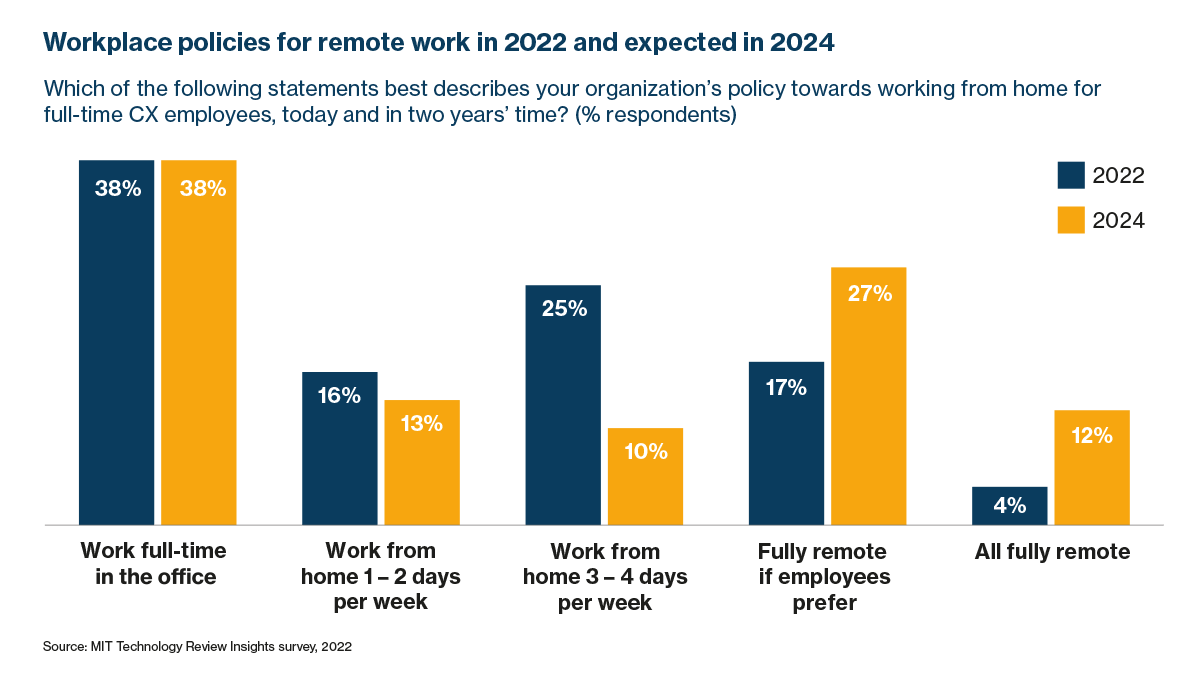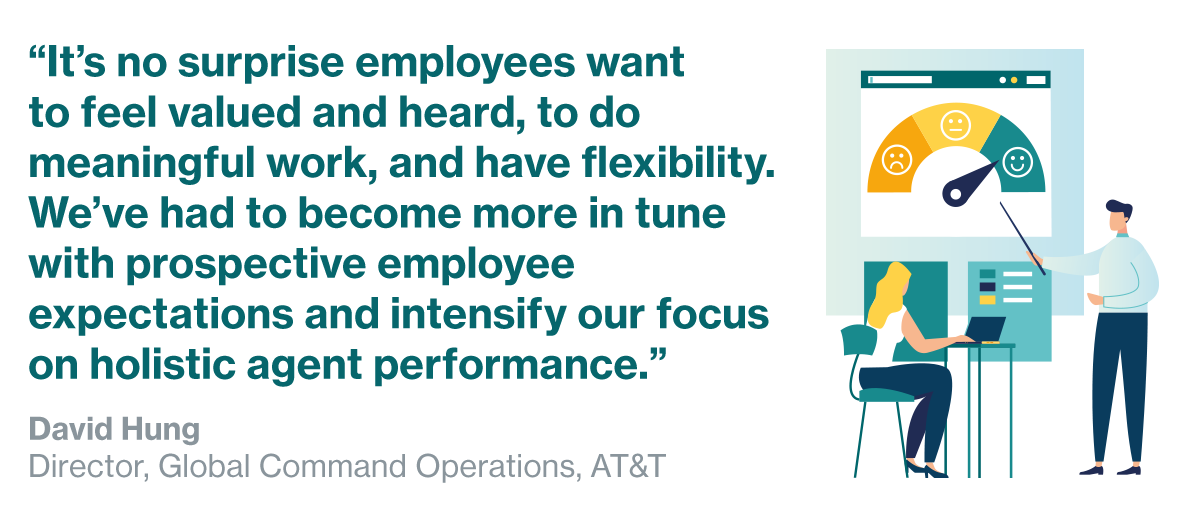Major trends such as the impact of covid-19 on accelerating digital commerce, remote and hybrid working, and changing employee expectations driving the “great resignation” are having profound effects on workforce strategies in contact centers worldwide. Indeed, as an industry that requires a high volume of employees, often in hourly paid positions, and with roles becoming increasingly enabled by technology, it is arguable that customer experience (CX) is a bellwether for understanding many of the disruptive trends globally affecting the workforce.

This report, “Customer experience and the future of work,” examines how organizations worldwide are reassessing their CX workforce and processes in the post-pandemic era. Based on a survey of 800 executives and a series of expert interviews, the report includes the following key findings:
- There is a “people paradox” in relation to CX staff. Of the survey respondents, 87% identify CX as a strategic differentiator of their brand. However, this research finds contradictory views about the employees who interact with customers on a daily basis: employers are more concerned with the challenge of finding new employees than retaining those they already have. While 96% of respondents consider hiring new employees to be challenging and 62% struggle with increasing recruitment costs, just one-third identify high staff turnover as a problem. Experts interviewed for this report describe driving a new culture in the CX team centered around flexibility, learning, and career development.
- Covid-19 has catalyzed a long-term shift toward flexible working for contact center employees. This report finds that the remote and hybrid working models rapidly deployed during the pandemic are here to stay, as workers value flexibility and organizations benefit from wider access to talent. According to the survey, fully remote working for contact center employees is expected to grow to 40% by 2024, and by that time, a further 23% will be operating a hybrid model.

- Working remotely has numerous benefits, but productivity and culture concerns remain. Some 84% of survey respondents say hybrid or remote work options allow them to better retain staff by offering flexible schedules: 60% say it lowers staff stress levels and improves their mental health, and 57% find it offers access to brand advocates or those with deeper knowledge. However, many CX leaders also have specific concerns about the negative effects of remote work on the quality of service they offer. Over half of respondents believe working from home has the potential to lower productivity or provide inconsistent customer service, and over 40% believe it can have a negative impact on culture and collaboration. These concerns have propelled many CX executives to invest in online tools and remote management practices to reinforce organization values and promote teamwork.
- CX work will require a more specialized and technical skill set as well as shifts in workforce strategy. Some 69% of survey respondents expect CX work to become more specialized in the coming one to two years. The skills employees will need include data and analytics, customer journey optimization, specialized product knowledge, and emotional intelligence. To develop these high-value skills, organizations predict expanding the number of full-time CX employees, from 44% of the CX workforce in 2022 to 49% of the workforce in 2024. CX leaders are also interested in exploring “gig work” models—89% of respondents expect to be using on-demand CX “gig employees” by 2024.

- Learning and development is a strategic focus area for improving the CX employee value proposition. Seventy-one percent of survey respondents identify learning and development as an area of the CX employee lifecycle most in need of improvement, and nearly half consider insufficient learning and development opportunities to be one of their employees’ greatest daily frustrations. In response, 41% of CX leaders expect to grow the number of learning and development specialists in their departments. Additionally, the survey finds that artificial intelligence (AI)-based coaching and training recommendations will be one of the most widely used technologies for supporting employees in the contact center by 2024.
This content was produced by Insights, the custom content arm of MIT Technology Review. It was not written by MIT Technology Review’s editorial staff.
